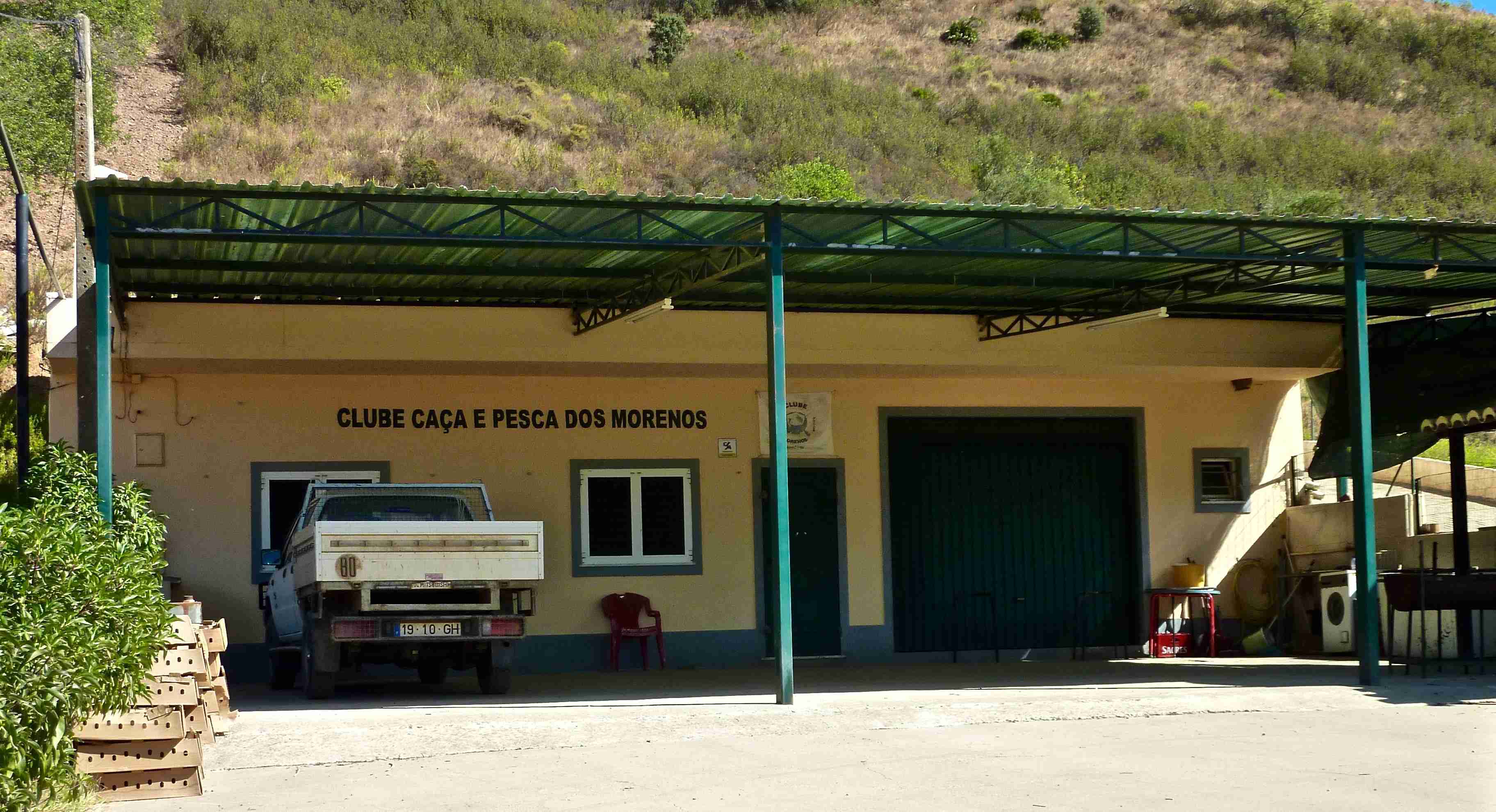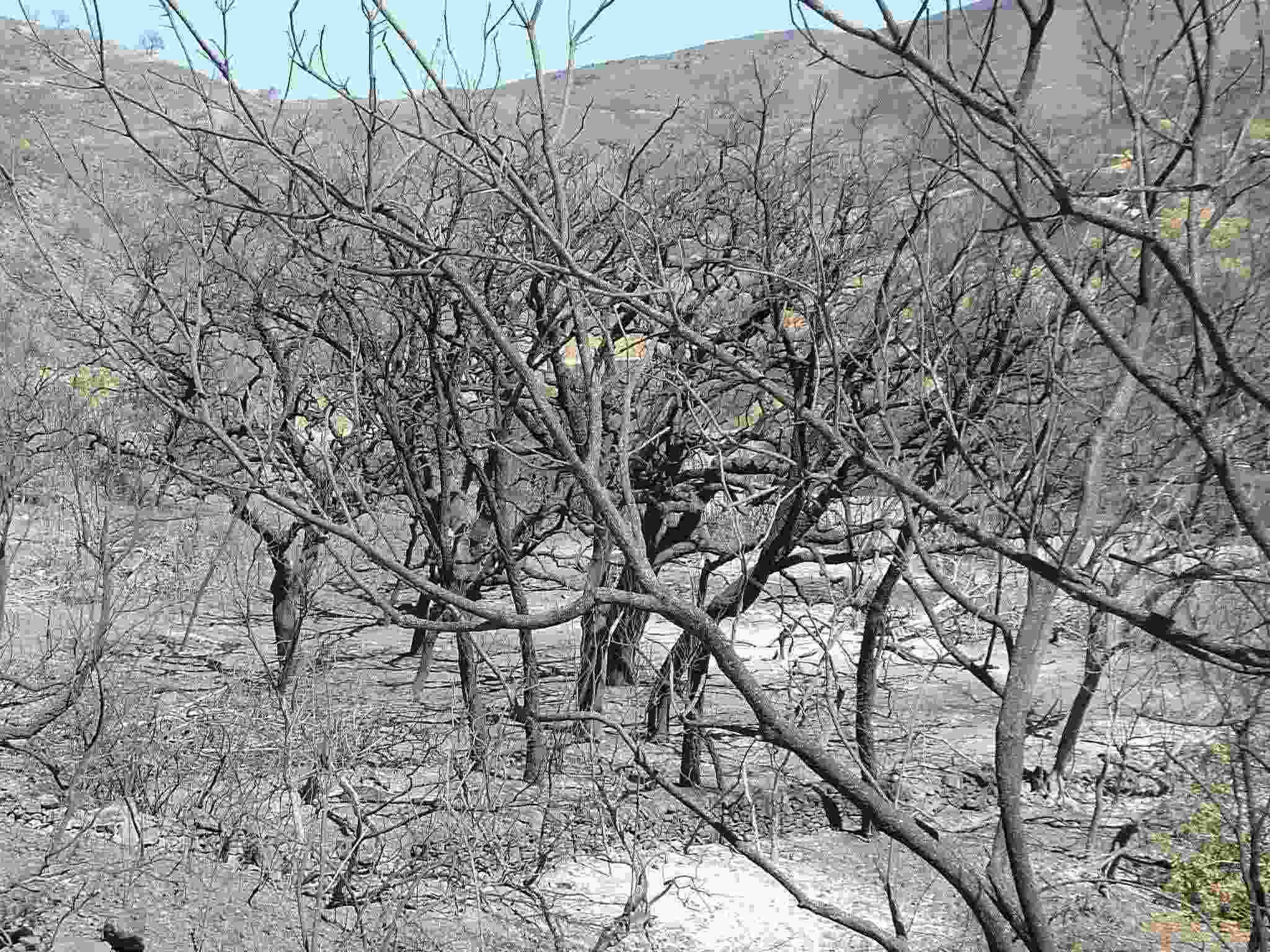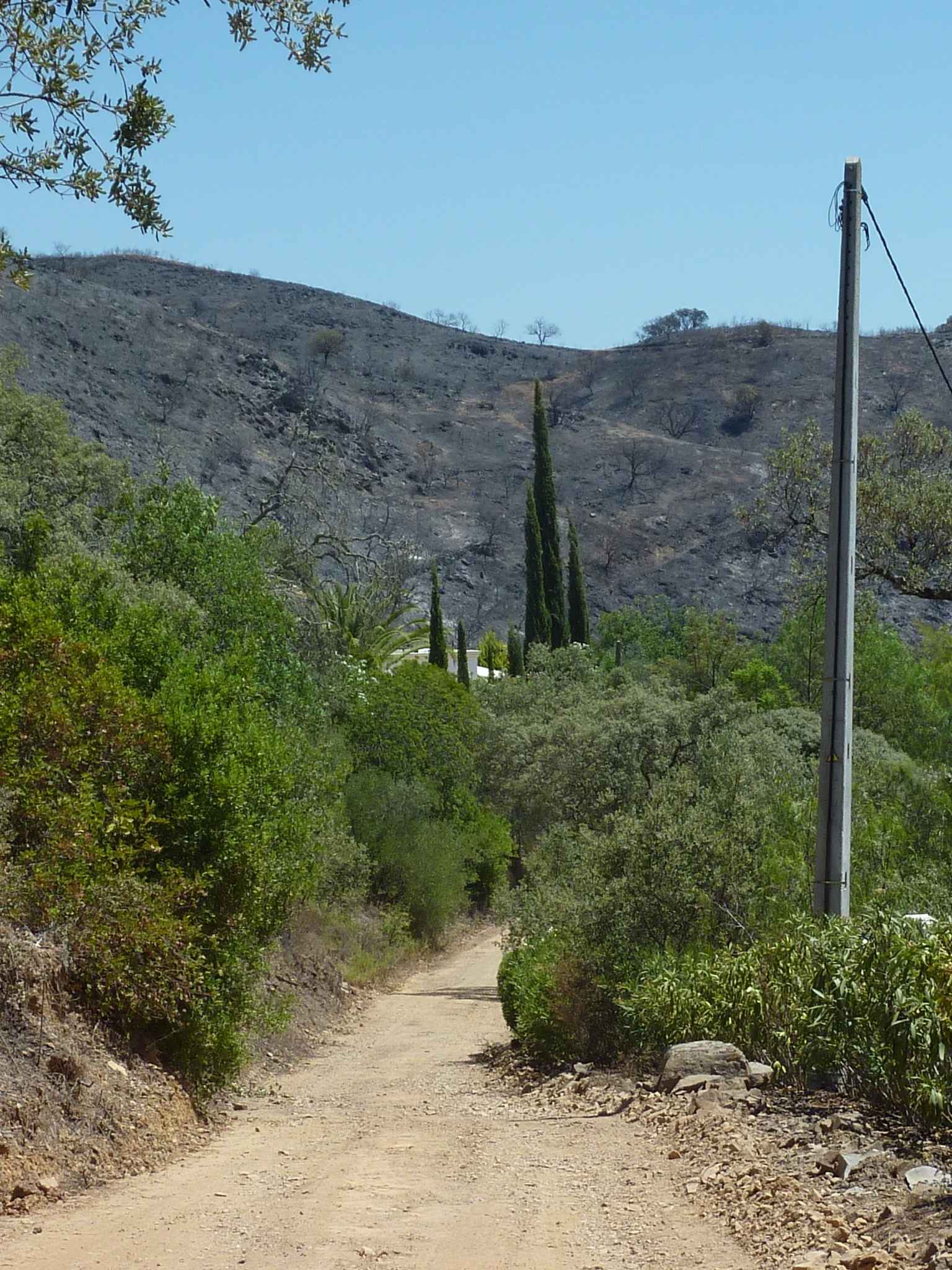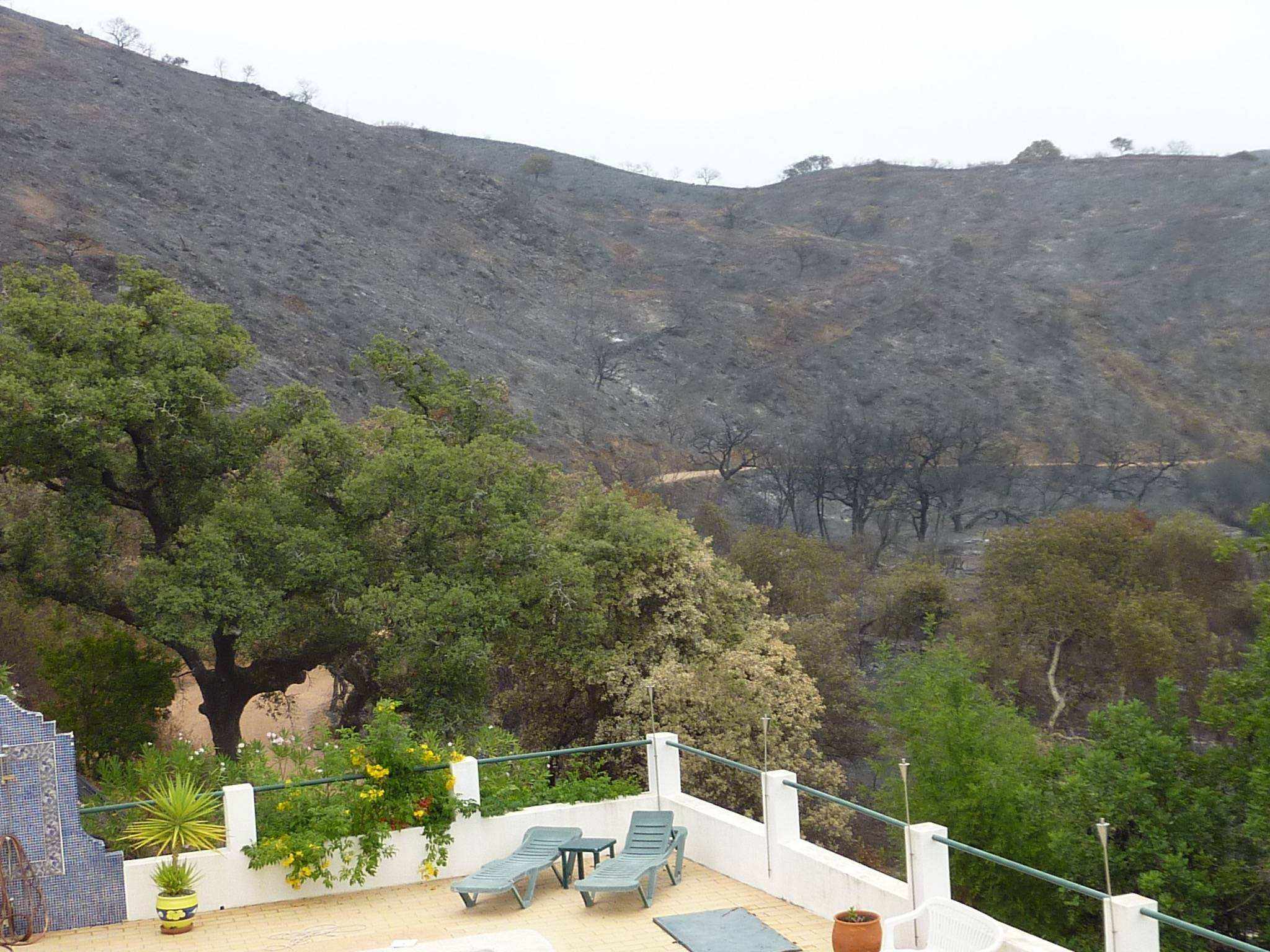Lynne Booker July 2012
A previous article about our village Morenos (Algarve Goodlife November 2010) ended: It is not only the scenery of the Algarve which is attractive. As much as anything else, our neighbours´attitude to life makes us feel at home.
We fled at 10 pm on Thursday 19 July as flames driven onwards by a stong wind swept over the hill to the east of our house. Although we had seen thick smoke charged with red and orange, we were amazed that the fire was so close, because two hours earlier it had been over seven kilometres away. Fortunately, Jean and David readily offered a bed for the night, but we slept little. We returned to nossa aldeia early the following morning to be greeted by Fernando Alegre at the local tasca. He told us that not only was our house safe but so was every other house in the village. Unlike the birdsong of other mornings, we could hear only silence. No golden orioles with their amazing whistle, nor the swallows chattering as they swoop around the sky to sip water from the pool, nor the bee-eaters with their merry chirping.
Villagers had been telephoning for help from bombeiros, police and Proteção Civil, but none appeared on that dreadful evening. It was the village men, notably the members of the Clube de Caça e Pesca, who took it upon themselves to protect the houses in the village. It was they, not the bombeiros, who had filled a tank on a pick-up in order to spread water by bucket around the houses and to put out what fires they could. Even the next day, we had to put out fires on our land which appeared to start spontaneously.

Now the fire is out, homes have been protected, people are safe but life in the village will never be the same again. Ancient cork oaks, carobs and olive trees have been destroyed. The cistus and canes will grow back rapidly but the mainstay of many people´s livelihood has disappeared as the source of their cash crops no longer exists. Ironically, the hunters who saved the village will have nothing to hunt next season. Rabbits, partridge, hares and javali have been killed in the blur of flame and smoked whipped up by fickle winds. Our Alportel valley is mostly black, but there are still pockets of green ignored by the capricious flames.


Our neighbour Maria da Silva lost her whole garden and irrigation system, a tragedy for an old widow with little money. She and others have survived over the years by subsistence farming, and coming into August we are entering their harvest season. First the carobs, then the grapes and then the olives. Because of the devastation, there will not be much rattling of the canes against the branches this year. It is reported that more than 20 000 hectares, one third of Tavira county, has been affected by this disaster, the biggest such fire in Portugal´s history.
If the tragedy has grave implications for village life, for the economy, for the patrimony of the Algarve, could it have been averted? How can such a disaster be prevented in the future? In our freguesia of Stª Catarina we have already signed a petition which seeks a public inquiry into the fire which affected the freguesias of Cachopo, Santa Catarina da Fonte do Bispo, Santo Estêvão, Santa Maria, and Conceição de Tavira. The petition states that there were no firefighters at some fire fronts, particularly on 19 July. Not unreasonably, people want to know why. Where were they when they were needed? People feel that they were abandoned to their fate, and some people have lost everything. Why were the authorities so slow to recognise this emergency? If a disaster of this magnitude cannot be averted, we should examine again the organisation of Civil Protection in Portugal and emergency planning measures should be reviewed. The county of Tavira should be declared a public disaster zone and national and even international assistance sought for reafforestation and people affected by this calamity should be helped through this physical and economic calamity. Another neighbour, Jorge Costa, tells us that for years he has been urging freguesia and câmara to plough firebreaks in the scrub. As the Portuguese proverb has it, now that the house has been robbed, they will lock the door.
In November 2010 I wrote The purest air in Europe, skies bluer than seems possible, a parade of different wild flowers through the year, a wild and wide variety of song from birds determined to impress. The magnificent sculptured trunks of oak and carob trees, the noise of the bells on the sheep and goats as they rummage for greenery. Manuel´s flock of sheep and goats survived, and so did his pig. The sky today is its usual impossible blue, and we shall have to wait until next spring for more flowers. The hills are black as well as green. José still plays his harmonica when I go to the tasca, where the hunters converse over their beers. That our house survived was due partly to luck, but also to the efforts of our Portuguese neighbours. We are lucky in our community and proud to be part of it.

